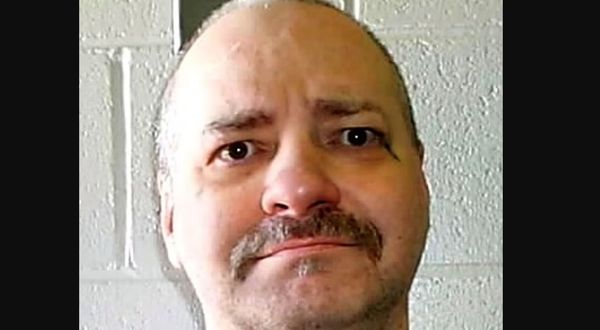In a shocking turn of events, the planned execution of infamous serial killer Thomas Eugene Creech was unexpectedly called off. The 73-year-old murderer, known for his heinous crimes that spanned across three states, was set to face lethal injection at the Idaho Maximum Security Institution. However, the medical team encountered significant difficulties in administering the injection, leading to the execution being halted at the last moment.

The tension was palpable as Creech was strapped into the execution chamber, with his family anxiously present. But after an agonizing 55-minute ordeal and eight failed attempts to find a suitable vein, Creech was ultimately returned to his cell. Despite being convicted of five murders and allegedly confessing to dozens more, Creech’s execution was marred by unexpected medical challenges.
Witnesses at the post-execution press conference described the emotional scene as Creech’s eyes remained fixed on his family, offering apologies and expressions of love. It was a heartbreaking moment for all involved. The warden finally had to inform Creech that the execution could not proceed as planned.
This botched execution has shed light on the recurring problem of inserting IV lines in death penalty cases across America. Creech’s ordeal mirrors that of Kenneth Eugene Smith, who faced similar challenges with lethal injection and became the first person to be executed via nitrogen hypoxia in Alabama the previous month.
Journalists have provided detailed accounts of the execution attempt, highlighting the difficulties faced by medical staff and the emotional turmoil experienced by Creech and his family. Despite their best efforts, including resorting to injecting through the gurney straps, the execution had to be abandoned.
In the aftermath of the failed execution, Creech’s attorneys have condemned Idaho officials for their handling of the situation, calling it a botched attempt to execute a “harmless old man.” They have raised concerns about the secrecy surrounding the source of execution drugs and questioned the qualifications of those responsible for carrying out the procedure.
Creech’s case has been marked by legal battles and numerous attempts to halt his execution. Despite being sentenced to death twice and facing execution dates 11 times over the years, he has managed to prolong his stay on death row for almost half a century.
His attorneys have made various arguments in their efforts to prevent his execution, including challenging the source of the lethal injection drugs and questioning the validity of his conviction. However, their appeals have had limited success, with the US Supreme Court denying Creech’s request for a stay of execution.
The failed execution has reignited debates surrounding the death penalty and the methods used for capital punishment in the United States. Creech’s case serves as a stark reminder of the complex legal and ethical issues that come with administering justice, especially in cases involving severe crimes and long-standing appeals.
As Creech’s fate remains uncertain, his case continues to capture national and international attention, prompting reflection on the efficacy and morality of the death penalty in modern society. The failed execution has exposed flaws in the system, and it is crucial to address these issues to ensure justice is served fairly and effectively.





